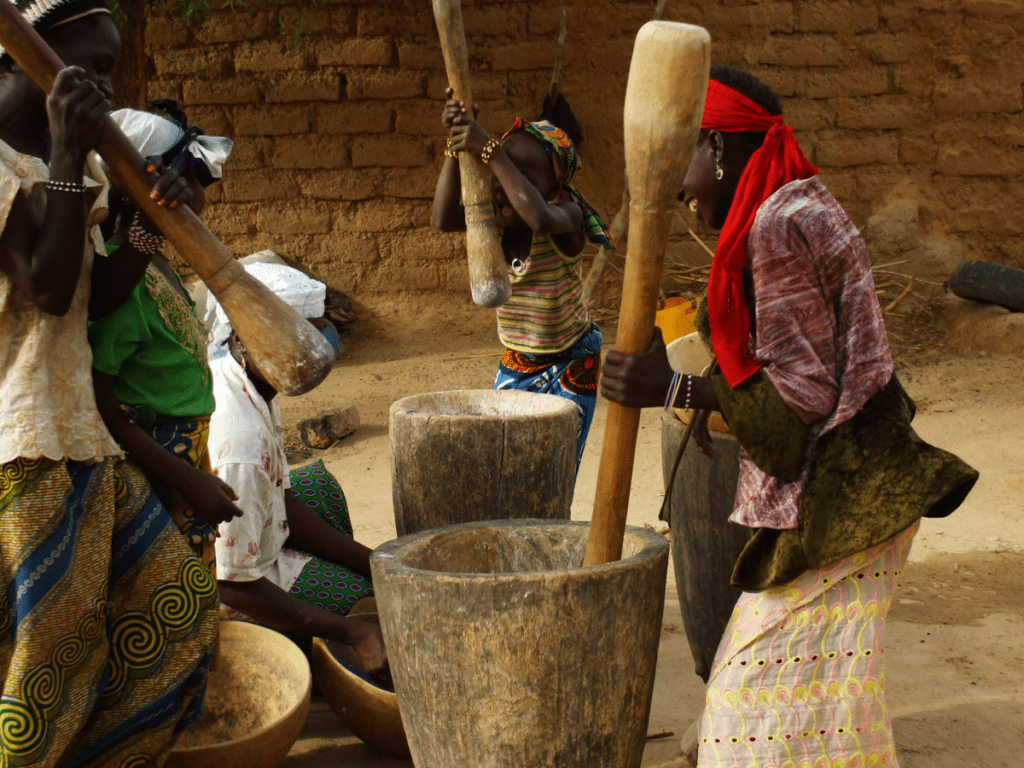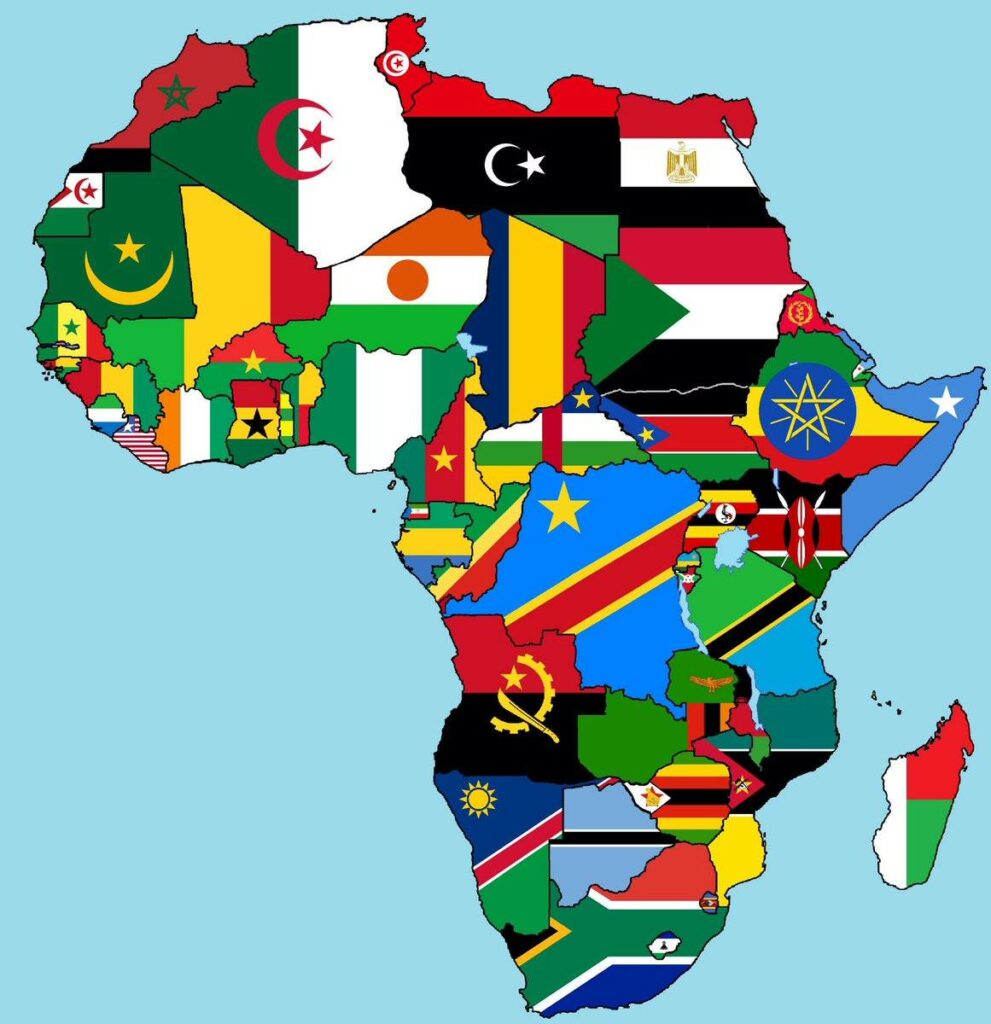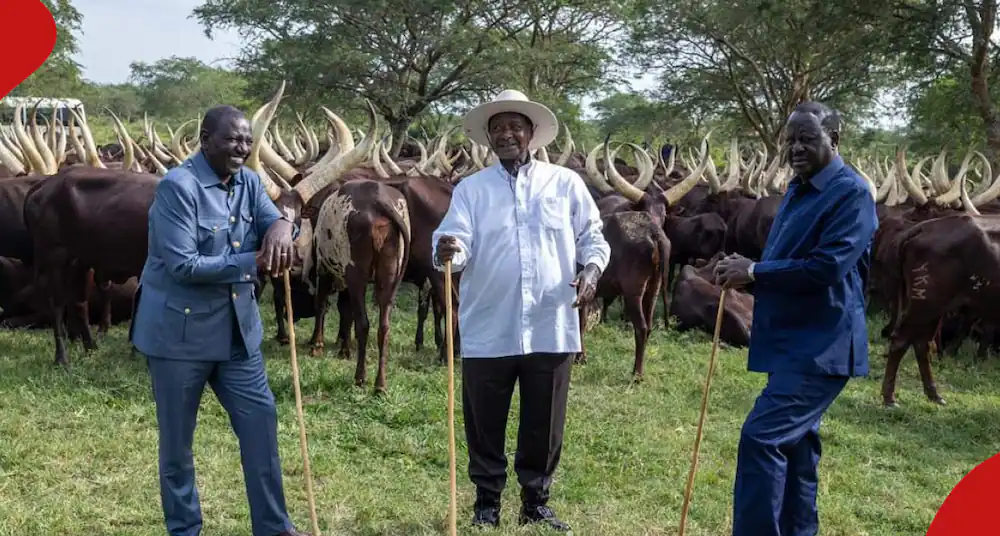Africa, the second-largest continent on Earth, is a land of remarkable diversity, not just in its cultures and landscapes but also in its sheer size. With 54 recognised countries, Africa is home to a multitude of nations, each unique in its own way. Among these nations, the top 7 largest countries in Africa stand out for their vast territories and compelling reasons why they are regarded as such.

1. Algeria
Algeria is Africa’s largest country, covering a staggering 2.38 million square kilometres. Much of its vastness is composed of the Sahara Desert, making it one of the world’s most arid countries. Algeria’s size is attributed to its historical significance as a part of the ancient Maghreb region.
Algeria, located in North Africa, is the largest country on the continent and offers a rich tapestry of history, culture, and geography. Its stunning landscapes range from the vast Sahara Desert to the rugged Atlas Mountains, providing a diverse environment for its people and visitors to explore.
With a tumultuous history marked by French colonialism and a hard-fought war for independence, Algeria gained sovereignty in 1962. Today, it is a nation with a vibrant blend of Arab and Berber influences, and its capital, Algiers, stands as a bustling hub of commerce, culture, and politics. Algeria’s diverse heritage, archaeological sites, and unique cuisine make it a captivating destination for those seeking an authentic North African experience.

2. Democratic Republic of Congo (DRC)
The DRC is the second-largest African nation, spanning approximately 2.34 million square kilometres. Its immense size is due to the country’s central location on the continent, encompassing vast rain-forests, the Congo River, and valuable mineral resources.
The Democratic Republic of the Congo (DRC), often simply referred to as Congo, is a vast and diverse country located in Central Africa. Known for its rich natural resources, including minerals like copper and cobalt, as well as its lush rainforests and the Congo River, it is the second-largest country in Africa by land area.
However, the DRC has faced numerous challenges, including political instability, conflict, and poverty. Its history is marked by a complex web of colonialism, post-independence struggles, and civil wars. Despite its challenges, the DRC is a place of cultural diversity, with a wealth of ethnic groups and languages, making it a unique and historically significant part of the African continent.
READ MORE: A journey through Tanzania’s top 7 spectacular national parks

3. Sudan
Sudan’s landmass covers around 1.88 million square kilometres. The country’s size is partly due to its location, straddling the Sahel region and Nile River basin. Sudan has a rich history and is known for its cultural diversity.
Sudan, a country rich in cultural diversity and natural beauty, holds great potential for a brighter future. With its vast landscapes, including the stunning Red Sea coastline and the lush Nubian Desert, Sudan offers unique opportunities for tourism and adventure.
The people of Sudan are known for their warmth and hospitality, making visitors feel welcome. Sudan’s history is a tapestry of ancient civilisations, and its cultural heritage, including vibrant music, dance, and cuisine, adds to the nation’s charm. As Sudan continues to overcome challenges and work towards peace and stability, its potential for growth and development shines ever brighter on the African continent.

4. Libya
Libya, with an area of about 1.77 million square kilometres, is the fourth-largest African country. Its vast desert expanses, including the Libyan Desert, contribute significantly to its size.
Libya, a nation rich in history and natural beauty, holds the promise of a brighter future. With its diverse landscapes, from the Mediterranean coastline to the vast Sahara Desert, Libya offers breathtaking scenery for travellers and adventure seekers.
The country’s rich cultural heritage, encompassing ancient ruins like Leptis Magna and Sabratha, reflects a storied past that continues to inspire curiosity and exploration. As Libya strives for stability and peace, there is hope for its people to harness their resilience and build a prosperous and united nation that can once again shine on the global stage.
READ MORE: 9 hidden gems in Africa: Top destinations in Africa you need to visit

5. Chad
Chad, spanning approximately 1.28 million square kilometres, is the fifth-largest African nation. Much of its territory lies within the Sahara Desert, with Lake Chad being one of its few prominent geographical features.
Chad possesses a rich tapestry of diverse cultures and breathtaking natural beauty. Its vast landscapes, from the Sahara Desert in the north to lush savannas in the south, offer a unique and captivating experience for travellers and adventurers.
The African country is also home to a resilient and warm-hearted population, known for their hospitality and sense of community. Its cultural heritage is equally remarkable, with a blend of traditional customs and modern influences. With so much to offer, Chad is an underrated gem for those seeking an authentic and enriching African experience.

6. Niger
Niger’s land area of 1.27 million square kilometres makes it the sixth-largest country in Africa. The majority of its territory is covered by the Sahara Desert, with a relatively small habitable zone along the Niger River.
Niger, as a vibrant and culturally rich nation in West Africa, boasts a diverse tapestry of traditions and landscapes. Its people are known for their warmth and hospitality, creating an inviting atmosphere for travellers from all corners of the world. With the magnificent Sahara Desert to the north and the picturesque Niger River cutting through its southern regions, Niger’s natural beauty is simply breathtaking.
The country’s commitment to preserving its unique heritage and fostering economic growth through sustainable practices is truly commendable. Niger’s potential for growth and its dedication to embracing its past while looking toward a promising future make it a captivating destination for those seeking both cultural enrichment and natural wonders.
READ MORE: Kenya’s top 5 destinations for an unforgettable journey

7. One of the largest countries in Africa – Angola
Angola, the seventh-largest country in Africa, covers around 1.25 million square kilometres. Its size is attributed to its extensive coastline along the Atlantic Ocean and its inland plateau regions.
Angola, with its rich tapestry of culture and diverse landscapes, is a country of great potential and promise. This southwest African nation is blessed with stunning natural beauty, from its picturesque coastline along the Atlantic Ocean to its lush forests and captivating wildlife. Its vibrant people, known for their warm hospitality, are working tirelessly to rebuild and reshape their nation after years of conflict.
The country’s burgeoning economy, driven by its vast reserves of natural resources, offers hope for a brighter future. Angola’s cultural heritage, with a mix of indigenous traditions and Portuguese influences, is a source of pride and a testament to the resilience of its people. In the face of challenges, Angola stands as a nation of hope, unity, and untapped possibilities.

Which African countries are largest by area?
These top 7 largest countries in Africa hold various records and distinctions, not only for their sheer size but also for their unique attributes. Their vast territories encompass diverse landscapes, from deserts to rain forests, and are often home to distinct cultural groups. Their historical significance, geographic features, and resources contribute to their prominence on the continent.
Moreover, the immense size of these countries has played a role in shaping their histories and cultures. From the Sahara’s nomadic traditions to the lush Congo Basin’s biodiversity, Africa’s largest countries are microcosms of the continent’s diversity.
According to World Atlas, Africa’s top 7 largest countries are awe-inspiring in both their size and significance. Each has its unique story to tell, from Algeria’s desert majesty to the Democratic Republic of Congo’s rich natural resources. These nations are a testament to Africa’s remarkable diversity, both in terms of its people and its vast landscapes.



